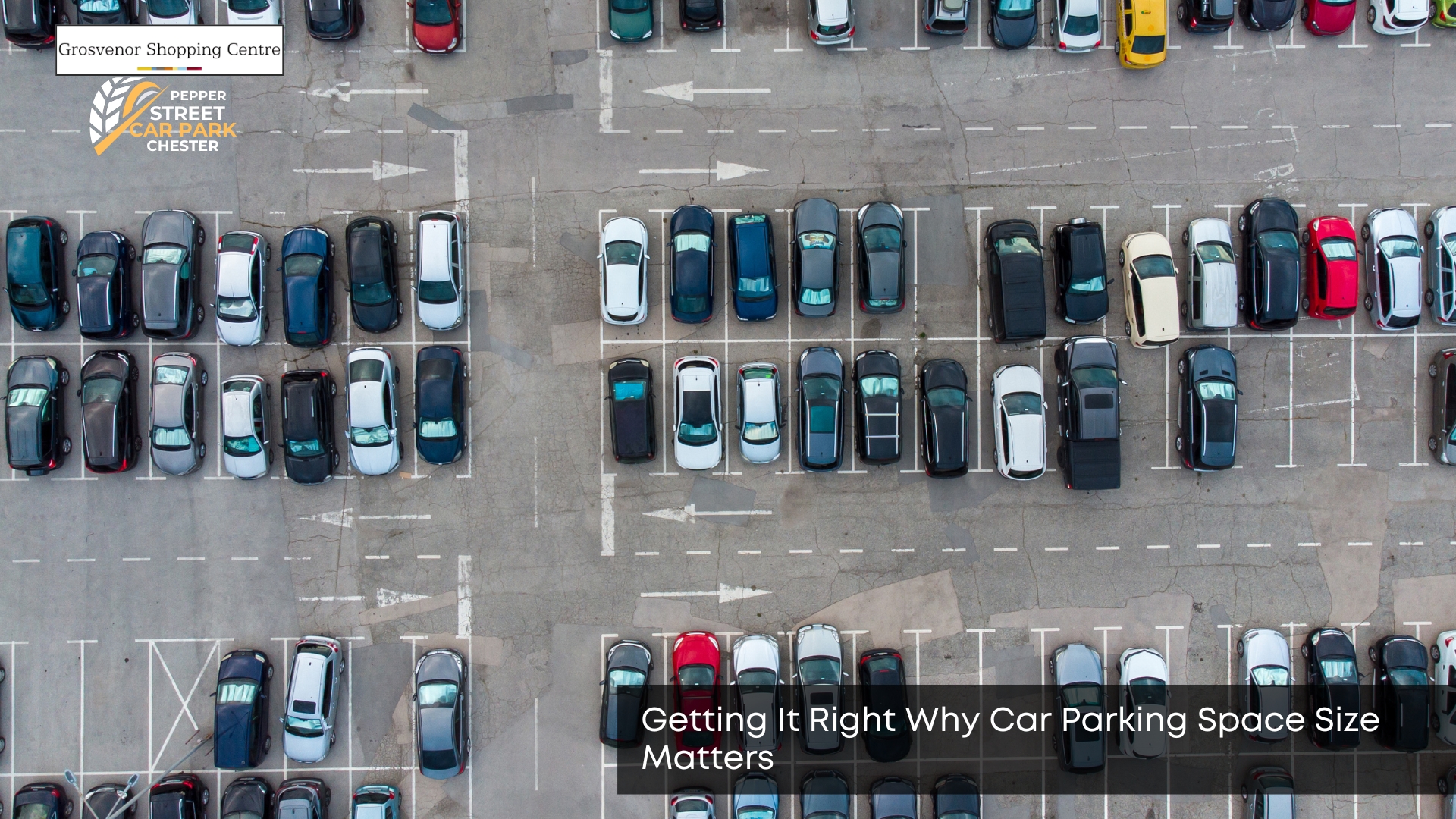Car parking space size matters more than most drivers realise. It affects safety, ease of parking, traffic flow, and even customer satisfaction. In the UK, having the right car park layout with correct space dimensions helps avoid accidents and ensures drivers feel confident. This article explains why getting it right makes a real difference to any car park. Let’s start with the standard space sizes.
What Is the Standard Car Parking Space Size in the UK?
The standard car parking space size in the UK is typically 2.4 metres wide by 4.8 metres long. These dimensions suit most modern vehicles, allowing for safe entry and exit. However, not all car parks follow this rule strictly, especially older ones or those in tight city locations. Understanding these measurements provides a solid foundation for evaluating the quality of space. This raises the question of why size matters in the first place.
Why Does Car Parking Space Size Matter for Safety?
The size of a car parking space matters for safety because tight spaces increase the risk of collisions and damage to doors. If bays are too narrow, drivers may struggle to park or open their doors without hitting another car. This can be a daily risk in busy or badly planned areas. A safe car park begins with well-sized spaces, which ties into how damage is often caused.
Can the Wrong Size Space Cause Damage to Vehicles?
Yes, a parking space that’s too small can easily lead to scrapes, dents or even broken mirrors. Narrow bays leave little room to manoeuvre and increase stress, especially for larger vehicles or newer drivers. Damage often happens when trying to exit a tight spot in a hurry. These frustrations can also quickly affect overall traffic flow.
How Does Parking Space Size Affect Traffic Flow?
The size of parking spaces affects traffic flow by influencing how easily vehicles enter, park, and exit. If cars are too tightly packed, they block lanes, cause delays and make the entire car park feel chaotic. Larger, well-spaced bays allow smoother driving and reduce congestion. This becomes even more important when looking at special access areas.
Is Space Size Important for Disabled or Family Parking?
Yes, disabled and family parking bays must be larger to allow for ramps, prams or easier access. These spaces are often wider and closer to entrances, supporting safety and comfort for people who need it most. Not having them correctly sized can lead to legal issues or user complaints. Now, consider how compact spaces work in other types of car parks.
Do Compact Spaces Work in All Types of Car Parks?
No, compact parking spaces are not suitable for all types of car parks. They might fit in tight urban locations or small private plots, but not in busy retail or hospital areas with large vehicles. Forcing every car into the same size bay causes stress and inefficiency. It helps to know how to spot if a space is too small.
How Can You Tell If a Parking Space Is Too Small?
A parking space may be too small if your car overlaps the lines, doors cannot open properly, or you struggle to reverse in. This is often a sign of outdated or poorly designed layouts. If drivers regularly occupy two bays or park at angles, the dimensions may need to be reviewed. Poor sizing also links closely with unclear markings.
What Happens When Spaces Are Poorly Marked or Measured?
Poorly marked or wrongly measured spaces confuse drivers, cause misalignment, and reduce the number of usable bays. Faded lines or uneven spacing make it difficult to determine where to park, often resulting in wasted space or minor collisions. This lack of order also affects driver confidence across the site.
Does Parking Bay Size Influence Driver Confidence?
Yes, drivers feel more confident when parking spaces are marked, wide enough, and easily accessible. Confidence leads to quicker, smoother parking, which benefits everyone. On the other hand, tight or awkward bays cause anxiety and slow down traffic. Reducing stress in this way also helps prevent avoidable penalties.
Can Proper Space Sizes Help Prevent Fines and Complaints?
Yes, correctly sized parking spaces can reduce fines and customer complaints. When bays are too small, users may park over the lines and be unfairly penalised. Clear, fair layouts reduce conflict and build trust with regular users. That trust can support a car park’s long-term efficiency.
How Does Space Size Affect Car Park Efficiency?
The right space size helps balance maximum capacity with smooth vehicle movement. Although many narrow bays may appear efficient, they can create bottlenecks. A thoughtful layout enhances usability and encourages people to stay engaged, something well-planned car park management services can help achieve. This becomes critical when reviewing older car park designs.
Should You Redesign Old Car Parks for a Better Fit?
Yes, older car parks often need redesigning to meet modern vehicle sizes and user needs. Cars have grown wider, and so has the demand for accessible and EV bays. Resizing spaces improves function and prevents ongoing issues, especially in a long stay parking solution where comfort and ease matter over time. When starting from scratch, layout planning is just as important.
What to Consider When Planning New Car Park Layouts
When designing a new car park, factors such as space size, turning radius, vehicle mix, and access points must all be considered. A good plan includes wider bays, clear signs and smooth traffic flow. Factoring these elements in from the start saves time and money. Planning well also ensures compliance with legal rules.
What Role Do Guidelines and Legal Standards Play?
UK car park layout guidelines help ensure that minimum space sizes and access standards are met. While not all rules are legal requirements, following them helps avoid complaints, legal risks, and accidents. Staying up to date with changes also helps meet growing demands, including those from EV drivers. These small details lead to smarter long-term decisions.
What Makes Proper Parking Space Sizes a Smart Investment?
Getting the parking space size right is a smart investment because it reduces damage, improves safety, boosts user satisfaction and avoids fines. A well-managed city centre car park feels professional and helps build trust. In the long run, it saves more than it costs and leaves a strong impression on all who use it.


Leave a Reply